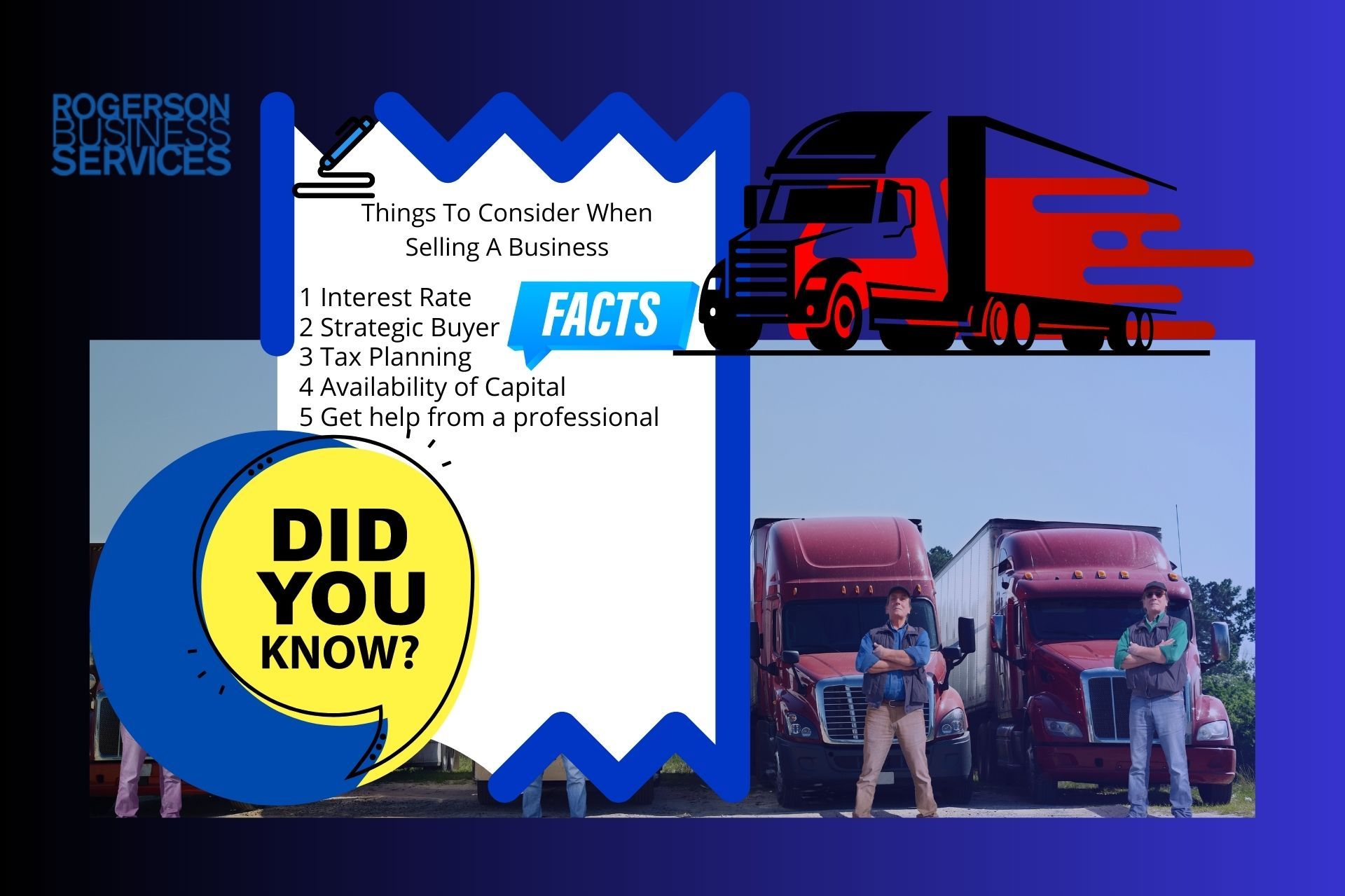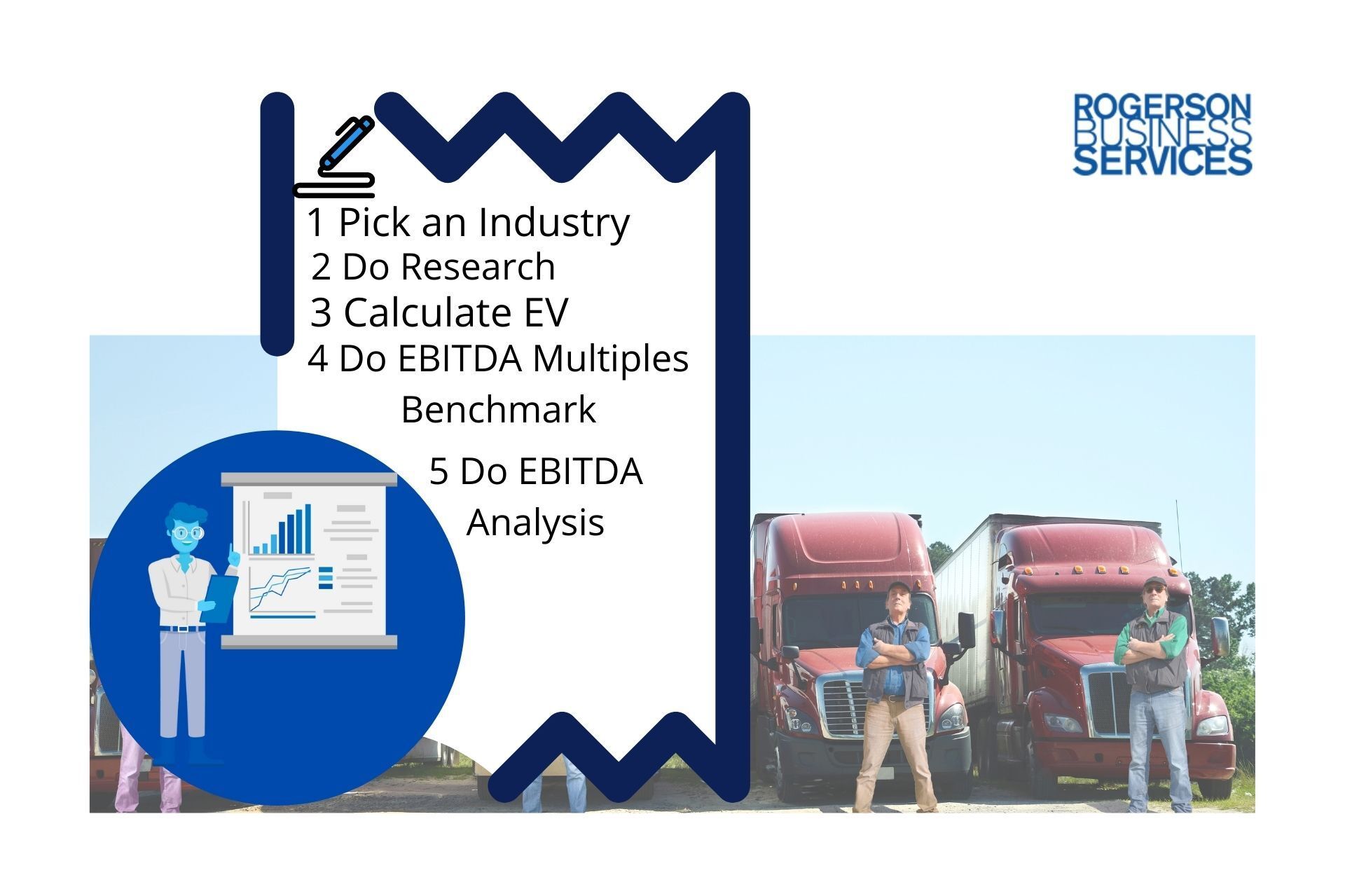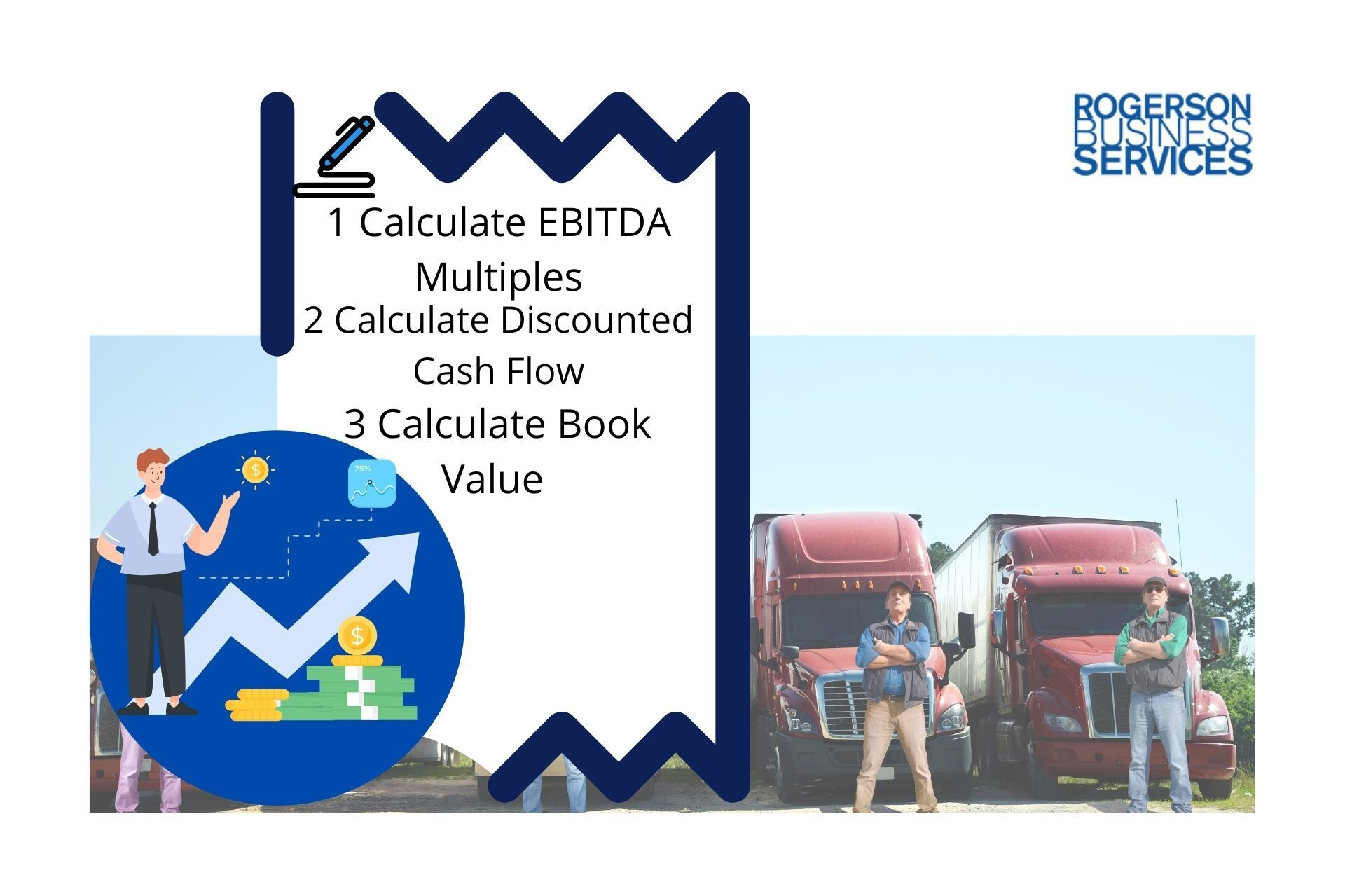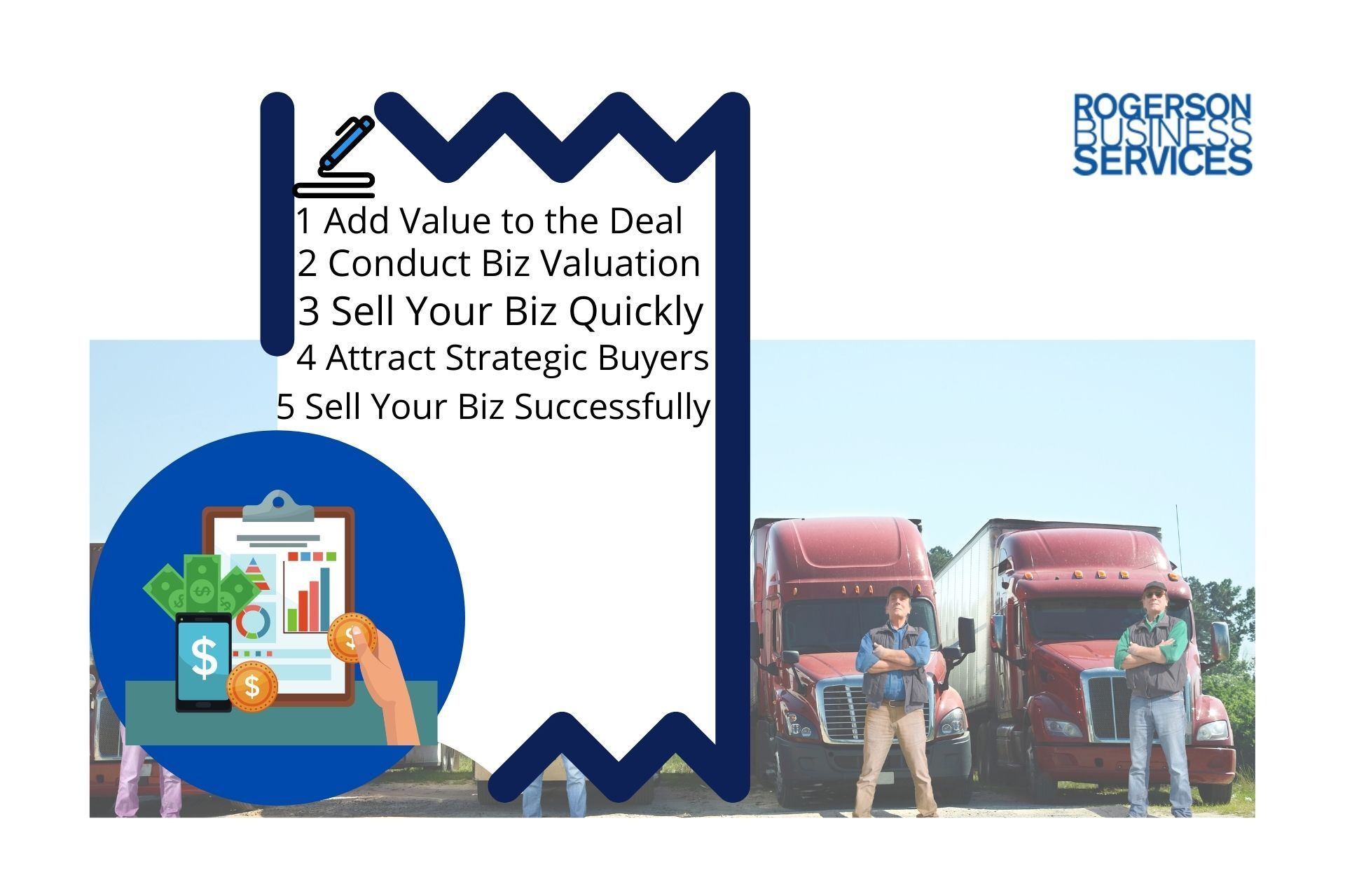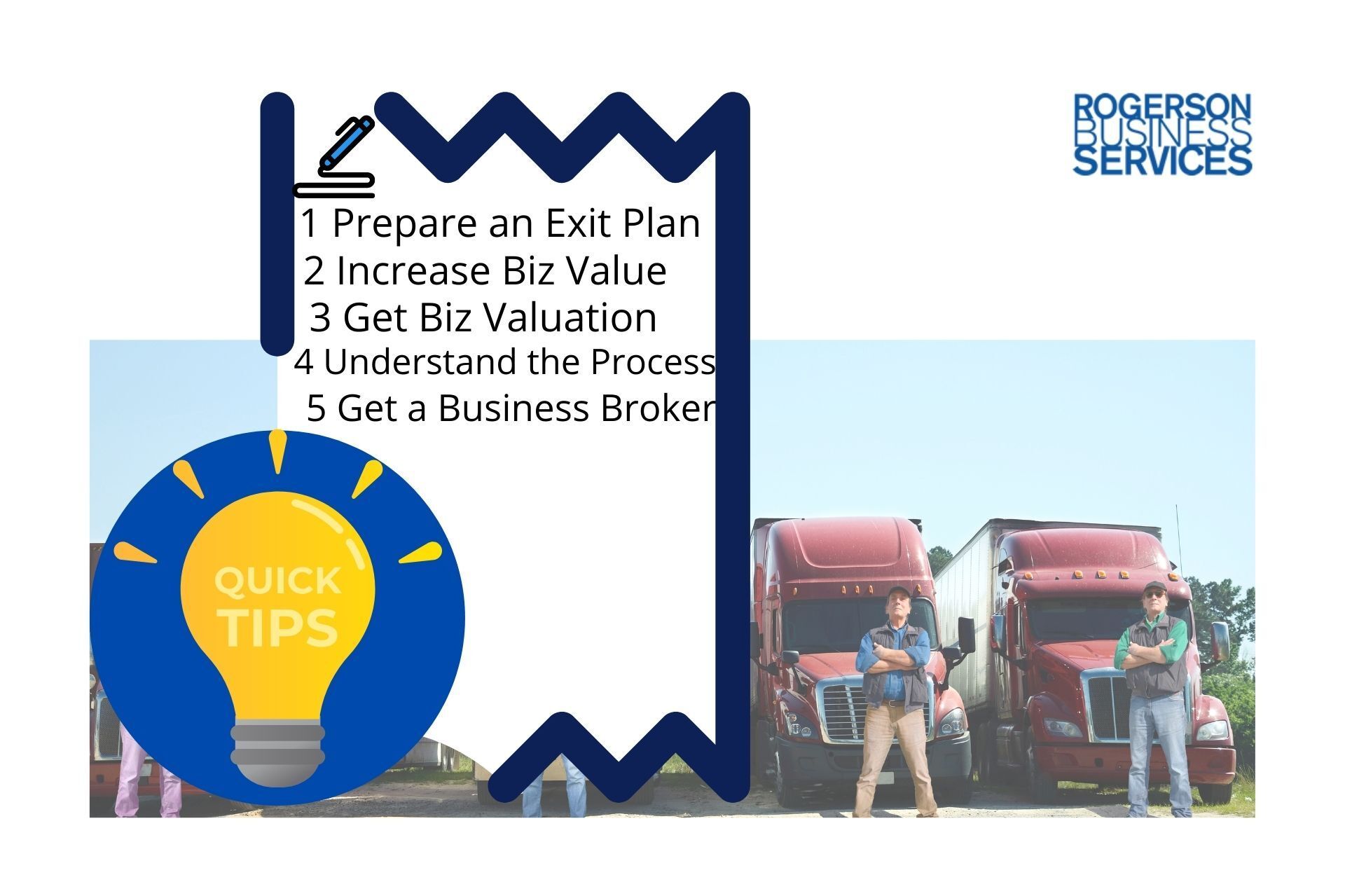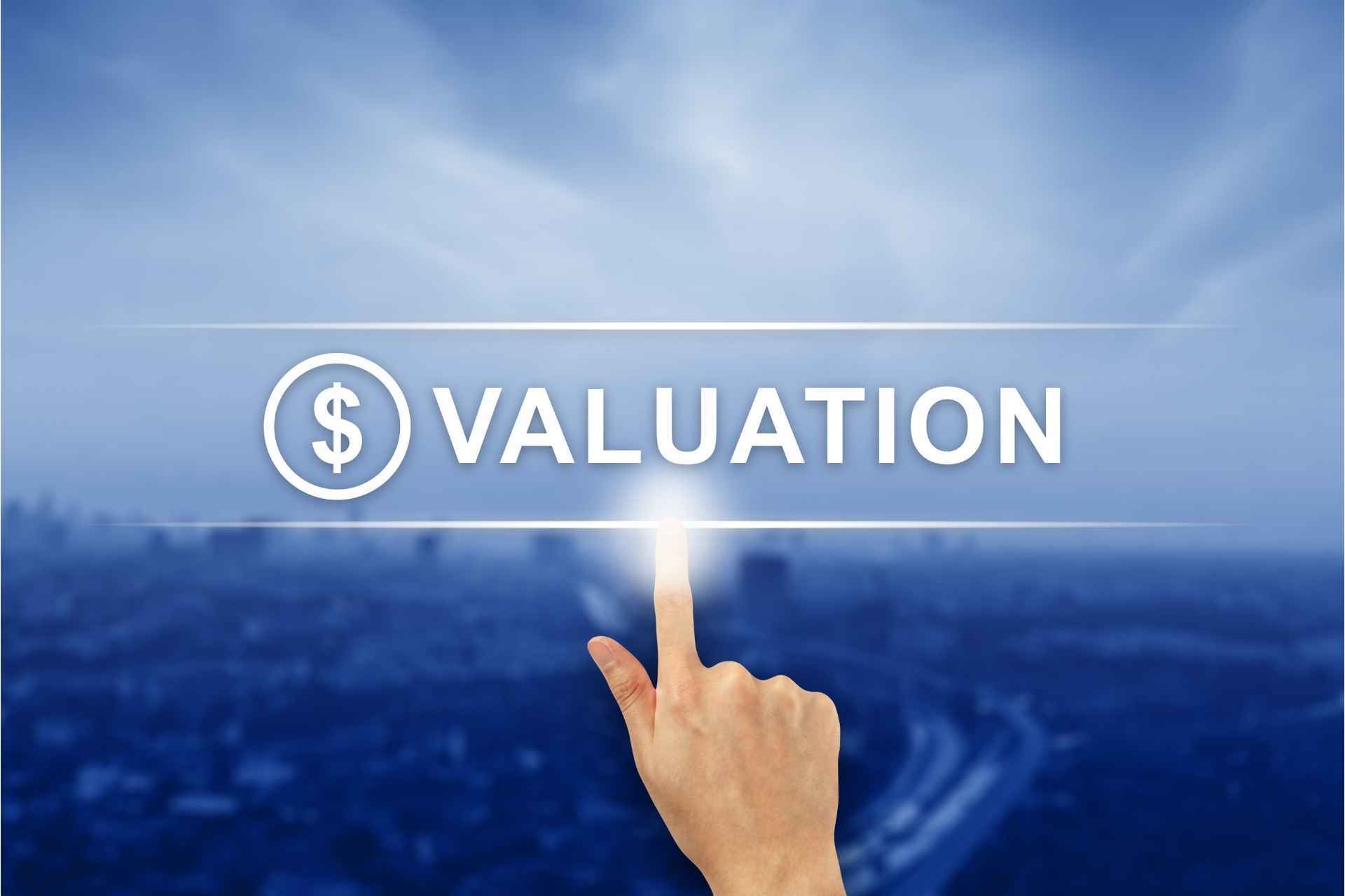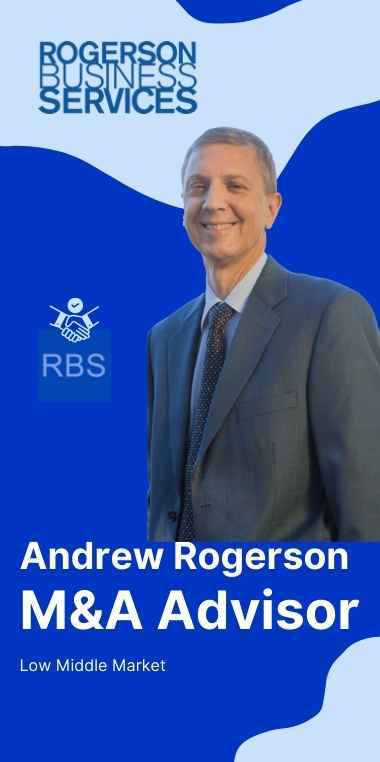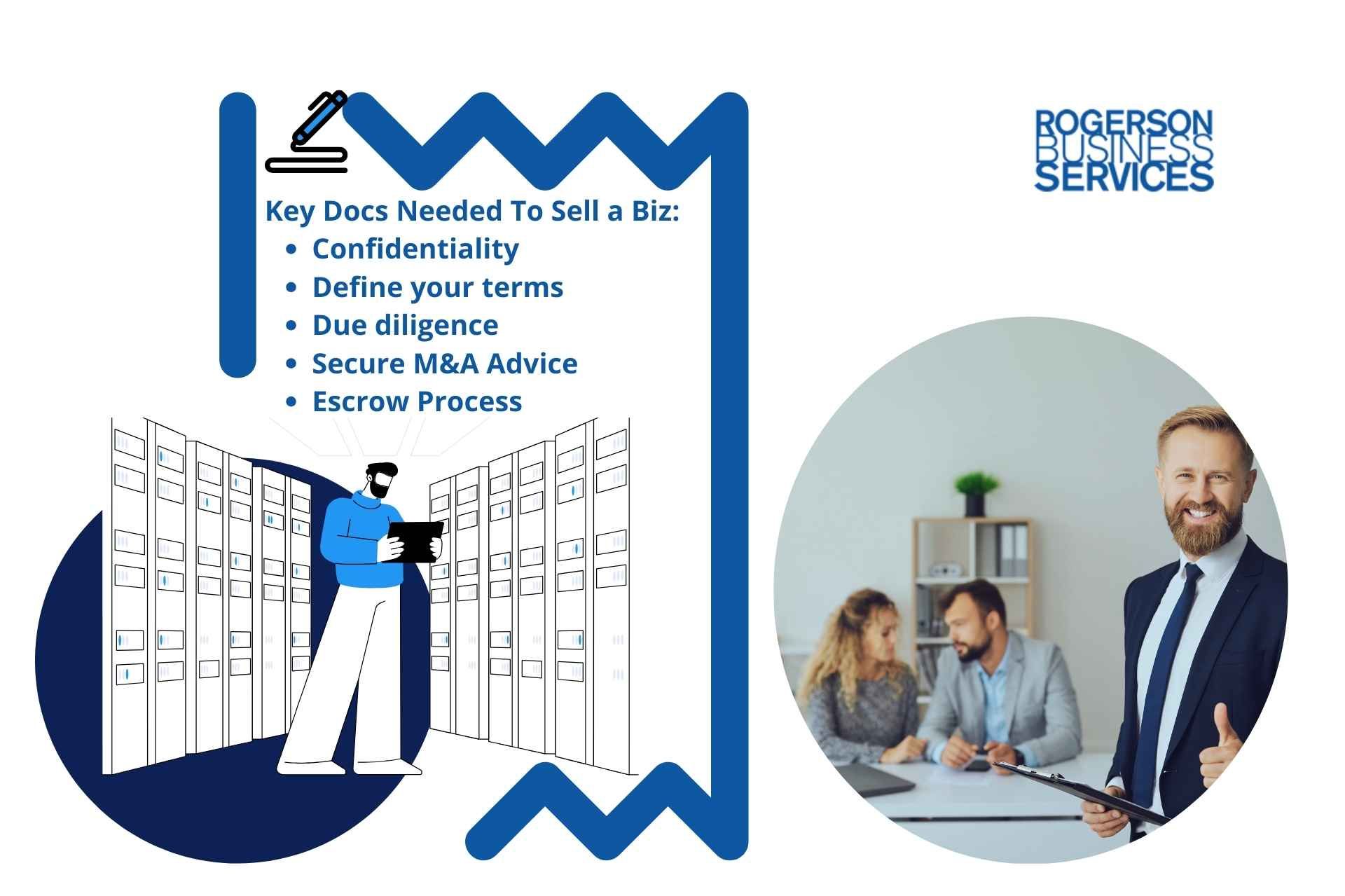The Ultimate Guide To Help Sell a Trucking Company
Considering to sell a trucking company in the lower middle-market transportation logistics business sector in California can be overwhelming. Without a proper, well prepared, exit plan, and an intermediary or professional business M&A Advisor to facilitate the sell-side M&A process, there is no way to guarantee that you made the right decision.
Get The Guide
M&A Guide
Increase Your Chance Of Success!
Guide to Help Exit a Transportation Company
Everything you need, all in this sell a trucking company business guide
Table of Contents
Selling a Trucking Company - Exit Strategy Introduction
How do you decide when it’s time to walk away from a business? While some entrepreneurs wait for retirement to sell their business, some owners decide to sell when they’re ready to pursue a new opportunity.
Developing a business exit strategy can help you lower risks. There is always a degree of risk tied to operating a business, and several factors outside of your control can create an uncertain future for your business venture. Opting for liquidity and reinvesting the proceeds of the sale of your business in a product that is more risk-averse can be a sound financial strategy.
It is also important to consider the future of the transportation logistics industry and to look at how different events happen in California to affect this sector. These events can be wildfires, earthquakes, floods plus other unplanned occurrences. These events touch the California economy be they in San Diego, the five counties surrounding Los Angeles, the Central Valley of California, Silicon Valley and the San Francisco Bay area or the rest of Northern California. The economy of the Bay Area was hit hard in 2020 between the wildfires and the prolonged lockdown.
The good news is that there is a positive outlook for the Transportation Logistics industry. Experts believe this industry will grow at a Compound Annual Growth Rate (CAGR) of 5% a year from 2020 to 2025. However, the Logistics industry is also a sector that is facing new challenges.
Transportation Logistics industry trends include new expectations from customers, complex supply chains, and new technologies like automation, analytics, and the Internet Of Things (IOT). There is a heightened level of competition, which always creates new opportunities for mergers & acquisitions.
You might have questions like
how do I sell my business privately,
how to calculate the value of a business for sale, or
if I sell my business how much tax will I pay. We’re here to answer these questions and address other important topics like the importance of a
sound exit strategy, how to
prepare your business for a sale, and why you should get help from an
M&A broker.
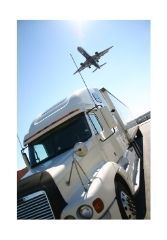
Top Reasons to Consider an Exit Strategy for Your Transport and Trucking Business
I want to sell my business. Where do I start? The best thing to do is start by establishing an exit strategy.
An exit strategy is a plan that outlines the sale of a company. This plan typically covers potential buyers for the transport, logistics, or trucking business for sale, strategies for the transition of ownership, and a range for your asking price. Your exit strategy framework can also include strategies for protecting the value of the business after the sale and minimizing disruptions for the workforce.
Trucking mergers and acquisitions can result in a profit for all the parties involved, but you can also establish an exit strategy to minimize risks tied to a struggling business.
Your exit strategy will act as a point of reference you can use to compare the offers you get. You should also have an exit plan, even if you’re not thinking about selling.
You never know when you will get an offer to trade your business shares for some liquidity. You should consider the offers even if you weren’t thinking about putting your Transportation and Logistics company up for sale.
Here are a few additional reasons to focus on business exit strategy planning:
- Financing. An M&A strategy often includes a capital injection. The potential new owners of a Transportation, Logistics, and Trucking business for sale should have access to financial resources that can contribute to the future growth of the business. Your M&A exit strategy should include steps for vetting potential buyers and selecting entities with enough capital to unlock sustainable growth in the long-term.
- Taxes. You need to consider the tax implications of selling your business. You will probably have to pay long-term capital gains taxes on the proceeds of the sale or pay taxes later if you opt for an installment sale. A solid business owner exit strategy should include a comparison of tax-related expenses with different scenarios.
- Offers. You never know when a competitor or investor will make an offer. Having an existing exit plan will help you evaluate the offers you receive and make the best decision possible.
- Planning. You never know what tomorrow will bring. A major life event could force you to retire early, and it’s always a good idea to have a strategy in place for selling your trucking business.
- Risk management. Having an exit strategy in place will help you manage risks more effectively. Factors like an economic recession or a major disruption in the logistics industry could limit your future potential for growth and force you to reconsider selling your trucking company.
- Mergers & Acquisitions.
In an industry that is highly competitive, like logistics, transportation, and trucking, M&As allow two or more businesses with a similar value proposition to come together and take over more market shares and become a major player in the industry instead of wasting resources on competing against each other.
How to Sell a Trucking Business
Whether you’re ready to list your business for sale or want to plan ahead and have an exit strategy in case the right offer comes along, you might be wondering, how do I sell my business? The following steps will help you prepare a logistics and trucking business for sale.
Preparing to Sell a Business in the Transportation and Logistics Sector
Before you list your trucking business for sale, there are a few questions to answer as an owner. Ask yourself if the sale makes sense from a financial point of view. Look at projections for future earnings and compare them to what you can obtain if you sell the business now.
You should also consider whether it makes more sense to completely liquidate your shares or retain a minority of shares in the company.
Look at the present value of all future dividends and distributions net of taxes and compare it to the profit you can make with a sale after expenses like taxes or fees related to hiring an M&A advisor.
You should not put your California business up for sale until you know what you will do with the proceeds of the sale. Are there any investment opportunities you want to pursue? What is the expected rate of return? A projection of future returns on other investments available to you will help you determine if selling your trucking business makes sense.
If there are other owners, find out how they feel about selling the business or working with a new owner once you sell your shares.
Types of Transportation and Logistics Companies
Before you can advertise your truck and hauling business for sale, you need to figure out the correct NAICS code for it. These codes describe your business activities and will help potential buyers understand what kind of business you’re selling. Using the right NAICS code is important because it can help buyers search for listings and find the right transport company for sale based on its activities.
The NAICS 48-49 category covers a wide range of activities related to transports and logistics. You can find more specific three to six-digit codes for things like air, rail, water, or truck transportation. There are codes for activities that support these different types of transportation and codes for activities like delivery, warehousing, and storage.
Due Diligence Checklist for Selling a Trucking Business
A buying and selling a business checklist will ensure that you have all the key documents you need to share information about how your business operates. Make sure you can access key legal documents like your record of bylaws, operating agreements, non-disclosure agreements, business plan, meeting minutes, financial statements, and more.
Now is a good time to go over your data system and make sure you can produce recent financial statements, payroll registers, enrollment information, invoice details, and a list of your customers.
The next item on your financial due diligence checklist should be updating your EBITDA. Your EBITDA is a measure of the profitability of your business, and you need to update it to reflect current taxes you might owe as well as the depreciation of your equipment.
You’ll also need to account for add-backs from ongoing expenses that you’re not including in your cash flow and make some adjustments to your income statement.
Updating your EBITDA will also help you assess where your business stands and whether you should target buyers interested in middle market businesses for sale or focus on the lower middle market.
You can also look at different pricing scenarios and their tax implications. It’s always good to know at which point the asking price can put you in the next tax bracket once you receive the proceeds from the sale.
Business Valuation
What is it? Why do I need one if I'm planning to sell a trucking company? What is my business worth?
How to Value a Trucking Compay
Valuing a transport and trucking company is a key step for preparing the business sale. You might be wondering what is my trucking company worth, how to value a company based on profit, or how to value a logistics company accurately.
It’s important to keep in mind that business valuation is one of the many data points a potential buyer should look at during their due diligence process before buying a trucking company. Business valuation is a useful measure that helps buyers compare the financial performance and potential of different businesses for sale, but it doesn’t paint a comprehensive picture. A serious buyer will want to look at additional factors and perform a thorough analysis of the logistics and transportation business for sale before making a decision.
Some factors can affect what your trucking company is worth, including:
- Growth prospects. Potential buyers will look at how much potential your trucking business has for future growth. A small and relatively new logistics business can be worth a lot if it possesses valuable IP or uses a promising business model that could lead to future growth.
- Earnings. Historical data about earnings and sales will help potential buyers assess what kind of sales volumes and cash flow to expect once they take over.
- Location. Location is a key factor when determining the worth of a transport and logistics business. Trucking companies located near a major hub are going to be worth more.
- Brand. A brand that is recognizable can add value to your business. The same thing applies to your reputation. A high customer satisfaction index and positive online reviews can justify a higher asking price.
- Staff and management. A company with a productive and motivated workforce can be worth more. Things like investing in training or showing low turnaround numbers can boost your asking price.
- Client base. Potential buyers are going to analyze your client base. A buyer will typically spend more on a business with long-term clients. A large number of clients can reduce risks and increase value compared to a few clients who account for the bulk of your sales. You can also ask more for your business if your clients represent different industries since low concentration reduces risks.
The best way to figure out how much is my business worth is to calculate the EBITDA. EBITDA stands for Earnings Before Interest, Taxes, Depreciation, and Amortizations.
EBITDA gives you an idea of the potential cash flow the business can generate over a given period of time. It helps potential buyers of a Transportation and Logistics business for sale in California, assess potential historical and potential earnings.
EBITDA also reflects the financial health of your trucking business while removing expenses that can hide how the company actually performs, like financing costs or capital expenditures.
Here’s the best how to value a business formula: Net income + Interest + Taxes + Depreciation + Amortization. You can also use Operating profit + Depreciation + Amortization.
If you look at trucking companies for sale, you will find that some owners are using EBITDA instead. This measure is more accurate to value some businesses in the logistics field because it adds rental costs to the formula.
You can then move on to figuring out your trucking company valuation multiples. Business valuation multiples will help potential buyers compare the performance of your business with other offers California businesses for sale.
You can use equity multiples or enterprise value multiples to share information about your trucking company net worth. Equity multiples make more sense if you’re selling shares of a business. These multiples reflect the financial performance of the business by focusing on stock valuation.
You can calculate the P/E ratio by comparing the share price to the earnings per share. The price/book ratio indicates the ratio of the share price to the book value per share, and the dividend yield looks at the ratio of the dividend per share to the share price.
If your business is not in good financial shape and you want to attract potential buyers of distressed businesses for sale, you can share the price/sales ratio, which reflects the ratio of the share price to the sales per share.
If the transaction doesn’t involve selling shares of the business, you should use enterprise value multiples instead. If you’re wondering how to value a business based on revenue, the first step is to calculate your EV or Enterprise Value with this formula: Market capitalization + Total debt – Cash and cash equivalents.
The EV is more accurate than the market capitalization because it reflects the amount of debt and cash the new owner will take over with the purchase of the business.
You can calculate the EV/revenue multiple by calculating the ratio of the EV to sales or EV to revenues. You can also calculate the EV/EBITDA or EV/EBITDAR ratio.
A business that is in good shape will have multiples that align with trends for its industry. EBITDA multiples for logistics companies are usually in the 8 to 9 range.
How much can I sell my business for? Calculating EBITDA and multiples should be a starting point for figuring out your asking price. How to calculate the value of a business for sale depends on the M&A market for your industry.
Look at recent sales, find out about similar businesses that are currently for sale, and ask yourself whether it’s a seller’s or a buyer’s market. EBITDA and other valuation measures are important, but the current market conditions will also influence what buyers are willing to pay for your trucking company for sale in California.
Learn how to plan an exit for your transportation logistics company
Sell-Side M&A
Four step process to market your trucking company for sale
01 Exit Plan - business valuation
Your potential buyers can come from many areas. Employees, individual and group investors, Private Equity Groups, and even competitors who may have an interest in purchasing your business. If a competitor is interested, you don't want to reveal too much information about your business, especially anything that could hurt your business if the deal falls through.
Once you decide to sell, get your business ready, and get help from a trusted and accredited California M&A Advisor.
An M&A Advisor will vet potential buyers to make sure they are qualified and are serious about purchasing your business.
A California Licensed M&A Advisor knows the ins and outs of selling a California business and can help you get your business in shape to get you the best deal.
02 Buyer Analysis
One of the first things your M&A Advisor will do, is help you to create an exit plan. An M&A Advisor knows exactly how to plan an M&A exit strategy. In fact, you might get a M&A Advisor to help you with an exit plan long before you're ready to sell your California company.
An M&A Advisor is knowledgeable about how to calculate the value of a business to sell and will aim to get the highest value for your business. Once everything is ready to go, they'll list your business for sale. An M&A Advisor will be an expert at listing a California businesses for sale.
After your business is listed, the M&A Advisor will handle all the marketing of your business to promote deal origination and get you in front of potential buyers. They'll also set a buyer list and work with you to figure out who to go after for the best value.
03 Deal Origination - marketing
An M&A Advisor will then work to get you as many qualified and motivated buyers of your business as possible.
They will market your business through the proper channels, including social selling and targeting and generating interest. They'll vet and follow up with interested buyers whether off-market or publicly listed.
Once the offers come in, your M&A Advisor will evaluate all offers and conduct market offer analysis to make sure you're getting the best deal.
04 Negotiation & Closing
Buyer Due Diligence
Once a buyer is performing their own due diligence, the M&A Advisor will help you navigate the process to make sure everything is running smoothly. They'll negotiate a Letter Of Intent between you and the buyer to lay out the proposed aspects of the deal. Your M&A Advisor will also help you gather all of the necessary paperwork discussed above. If the buyer asks for additional documentation, your M&A Advisor can help guide you.
As a buyer is going through the due diligence process, they will be on the lookout for red flags about your business. An experienced M&A Advisor is knowledgeable about these warning signs and can help you prevent them. Red flags may include refusing to disclose why you're selling, not allowing time to conduct due diligence, refusal to introduce the buyer to employees, suppliers, landlords, and more.
Definitive Purchase Agreement
The M&A Advisor will oversee the Definitive Purchase Agreement with the help of the transaction attorneys to make sure both parties are happy with the terms. A Definitive Purchase Agreement protects both you and the buyer as it will clearly state exactly what is and is not being sold. It can also protect the buyer from certain liabilities. A Definitive Purchase Agreement will also help you deal with the legal complexities of selling a California lower middle market business.
Once the Definitive Purchase Agreement is finalized, the M&A Advisor will help with any final items that need to be done as part of the closing process including working with a California Licensed Escrow company.
Closing - Finalize the Transaction and Close the Deal
Finally, your M&A Advisor will help prepare the close of your transaction. Once the closing is complete, they'll assist with overseeing the transition of the business change of ownership.

What Is the Role of M&A Advisors in Selling a Transportation and Trucking Company?
I want to sell my business, what should I do next? You should consider hiring an M&A Advisor to help you navigate this process. The role of a broker is to arrange a transaction between a buyer and a seller.
M&A Advisors will bring their experience and expertise to the table and help you negotiate the best deal possible. Their role is to prepare your business for the sale, vet buyers, teach you how to prepare an exit strategy, and assist you with technical questions like the tax implications of the sale.
There are many benefits to consider when hiring an M&A Broker. You can get a better price for your freight brokerage business for sale and avoid wasting time with buyers who are not a good match.
Buyer Analysis
Buyer analysis is one of the duties your M&A Broker will perform. Logistics industry growth opportunities attract a wide range of buyers, but not all of them are going to be a good match for your company.
You will start getting offers from potential buyers once you advertise your cargo shipping and trucking business for sale and starting the due diligence process with a buyer who doesn’t have access to financing or who isn’t serious will result in a waste of time. You could miss out on an offer from a serious buyer if you don’t vet buyers properly.
The M&A Intermediary you work with will start this process by qualifying potential buyers and reaching out to them to advertise the offer.
Potential buyers can be competitors, employees, investors, Private Equity Groups, family offices, corporate investors, and other entities.
Competitors make for an interesting pool of buyers. There is a strong potential for growth through acquisition since two or more mid market companies for sale can merge and control more market shares.
Businesses can expand the range of services they offer through an M&A deal and spend fewer resources on competing by merging with a former competitor.
It’s important to exercise caution when dealing with competitors. The documents needed to sell a trucking business include financial statements, agreements, and other documents that will give your competitors access to the ins and outs of how your business operates.
If the deal falls through, you could end up with a competitor who knows too much about your business. An M&A Broker can identify serious buyers so that you don’t reveal too much information to a competitor.
Middle market M&A Intermediaries can also identify corporate, strategic, and synergistic buyers. These buyers have a plan to achieve growth through mergers and acquisitions.
These companies might not be buyers that you would consider, but a broker can identify these buyers and analyze whether your shipping container business for sale is a good match for their M&A strategy.
Acquisition-Oriented Businesses
Lower mid market businesses for sale can attract acquisition-oriented buyers. It’s a type of deal an M&A Broker can help you set up, and you might find that your business is worth more to a buyer who has a specific acquisition strategy in mind.
Acquisition-oriented businesses pursue strategic growth as their primary goal. They might look for lower middle market M&A opportunities to grow an existing business or purchase your freight and trucking business for sale to leverage existing processes.
Here are some of the strategies these buyers might pursue:
- Some buyers will consider buying a transportation, logistics, or trucking business so they can invest in it and improve its performance and profitability. Strategic buyers will often look for businesses with low-performance numbers or organizations that are undervalued to get the best return possible on their investment.
- Acquisition-oriented businesses sometimes use consolidation strategies. When the offer is greater than the demand for a service, competition can become difficult. It often makes more sense to consolidate competing businesses into one entity that offers a single service.
- Market access is another strategy buyers might use. If your company has the capacity to offer a service but doesn’t have access to the right market because of its location or small size, getting access to a bigger platform through an M&A deal can facilitate market access through its existing customer base or location.
- Some buyers are after skills, technology, IP, and other assets. A buyer might not be interested in operating the company they buy. They might want to make the purchase because the business holds assets that would add value to the existing company, including a skilled workforce, patents, or equipment.
- Transportation business opportunities can attract strategic buyers because of scalability. A company that uses a transport and logistic service can scale up its operations and reduce costs by buying a truck company instead of outsourcing delivery.
- The freight and logistics M&A landscape 2022 revealed opportunities for growth in this sector, even when other industries struggled because of the pandemic. This strong potential for sustainable growth is attracting buyers who are looking for transformational mergers. These mergers allow a business that is struggling to enter a new market and offer new products or services by using an existing platform.
An M&A broker can analyze your business and find areas that would create value for strategic and synergetic buyers. They can reach out to these buyers and highlight the processes and assets that would be a good match for the acquisition strategies of the corporate buyers they have identified.
What Does a M&A Advisor Manage During a Business Sale?
A broker will assist you with the following phases and activities.
Exit Plan
An M&A Intermediary will help you establish a business exit strategy. This exit plan will outline the best path to take to sell the business and will include strategies and marketing activities for listing and promoting the deal or offer.
The exit plan will also identify the most relevant business valuation method and include a list of potential buyers, along with steps the broker will take to vet these buyers.
Deal Origination
Your M&A Advisor will put together an outreach program to contact vetted buyers and get them interested in your trucking business for sale California. They will pitch buyers and generate leads by focusing on the unique value your operation represents based on where each buyer stands.
Besides engaging in social selling, your M&A Intermediary can create and distribute information to advertise the business for sale and reach out to a wider range of buyers.
As offers start coming in, your M&A Advisor will analyze and evaluate them. They will provide advice to help you select the best offer for your personal goals and the future of the freight hauling and trucking company for sale.
Negotiation and Buyer Due Diligence
Your M&A Broker will help with the negotiation process. They will assist with the creation of a Letter Of Intent that works as a non-binding agreement between the parties to establish a timeline and some general terms for the deal.
Anyone interested in buying a transportation company will have an M&A financial due diligence checklist. Your broker will help the buyer perform their due diligence process while maintaining confidentiality.
Here are some of the documents they will provide the buyer with:
- Income statements
- Records of accounts receivable and payable
- Balance sheets
- Tax returns
- Business activity statements for the past three to five years
- Profit and loss records for the past two to three years
- Cash deposit and payment records
- Utility accounts
- Statements for banks lines and loans of credit
- Meeting minutes
- Audit work paper files if applicable
- Your written claims about the business and why you’re selling it
- Privacy agreements
- Compliance-related paper trail
- Inventory records
- Any paperwork related to equipment, fixtures, and vehicles
- Records of intellectual assets, including IP, trademarks, and patents
- Contract with employees, vendors, and clients
- Partnership agreements
- Leases
- Details of your automated financial systems
- Credit history
- Business valuation information
Avoiding Common Warning Signs
When scouting logistics, transportation, or trucking companies for sale, buyers are going to have a list of warning signs to watch out for. A broker can help you provide everything the buyer needs for their due diligence process without raising any of
these common red flags:
- You refuse to share important information or who won’t give a valid reason for wanting to sell the business.
- You won’t agree to a trial period during which the buyer can complete their due diligence process. It’s common to agree to a trial period of at least 30 days.
- You’re reluctant to let the buyer meet suppliers, partners, and other key people.
- You want to move too fast and close the deal as quickly as possible.
- There are legal proceedings you didn’t disclose.
- There are issues or inconsistencies with your credit history.
Negotiating the Definitive Purchase Agreement
Offering middle-market businesses for sale involves several steps. The
M&A Advisor
works closely with you and your
legal advisor, especially while negotiating and finalizing the
Definitive Purchase Agreement.
This Definitive Purchase Agreement helps both parties reach their goals for the transaction and allows no room for error as it completely represents the legal wishes of each party.
A good
M&A Definitive Agreement
is the lynchpin of a good transaction. Both seller and buyer exchange a large amount of information from different sources. This is often over many months of conversations. These exchanges are then condensed, with their individual interests, as best as possible into the Purchase Agreement.
Items a typical Definitive Purchase Agreement may include:
- Treatment of Shares, Options, and any other Securities; if appropriate to the transaction
- Representations and Warranties
- Covenants
- Solicitation (“No Shop” clause)
- Financing
- Termination Fee (or “Break-Up Fee”)
- Indemnification
- Material Adverse Change (MAC) and Material Adverse Effect (MAE) Clauses
- Closing Conditions
The Definitive Purchase Agreement can have potential pitfalls, so your M&A Advisor needs to keep the communication open with the Buyer and their Deal Team as well as the Seller and their Deal Team.
The M&A Definitive Purchase Agreement also needs to include details about tax obligations and consequences, especially if shareholders are involved.
Avoiding Pitfalls if you have a Buy-Sell Agreement
What if the seller is two or more individuals?
Many businesses have multiple owners or shareholders. Getting an agreement from a majority of the shareholders about selling the business and being willing to accept an offer can be challenging. One of the shareholders may not have any interest in selling the business at all or may want something specific most buyers will not be willing to agree. If this is the case, hopefully there is a Buy-Sell Agreement in place as this will outline what each shareholder needs to do. A few years previously I had a transaction with 9 shareholders. One shareholder with a minority interest initially refused to sell. Eventually they changed their mind but it was stressful while this played out.
If no Buy-Sell Agreement is in place and there is tension between the owners and shareholders, the pressure to decide the future direction of the business may be challenging. This article provides additional information for an owner or shareholder with
how to avoid buy-sell agreement pitfalls. To help their clients, M&A Advisors should understand the importance of assumption of liability, so their buyers and sellers know who is responsible for any lingering claims.
The agreement also needs to have information about indemnity clauses regarding operations. For Transportation & Logistics companies, concerns about environmental liability, breaches of warranties, and other issues need to be factored into the indemnity clauses of a Definitive Purchase Agreement.
Buy-sell agreements can be confusing, so it is helpful to learn how to understand buy-sell agreements and how a buy-sell agreement can save a business.
Closing
Your M &A Advisor will play an important part during the
closing process. They will establish a timeline for the deal and see it through by negotiating the terms and finalizing the contract. They will facilitate the financial transaction and make sure the transition is as smooth as possible.
Mistakes to Avoid When Selling a Transport and Logistics Business in California
I’m thinking about selling my trucking company. Do I need to hire an M&A broker? Selling your business on your own might seem like a good option to reduce fees, but a broker will help you avoid common mistakes.
One of the main pitfalls to avoid is undervaluing your cargo ship business for sale. A seller will look at a business as less valuable if you can’t provide them with a plan for future growth. You need to identify opportunities for growth and show which existing resources the business can deploy to pursue these opportunities.
Cash flow can also be an issue. It’s a measure of the financial health of a business, and buyers will expect to spend less if your operation doesn’t generate a steady cash flow since they will have to invest more capital into the project.
Your client base can reduce the value of your business. A buyer will consider that your business carries more risks if you rely on a small customer base or use a few suppliers. Having a few major customers can be an issue if one of these clients opts for a different vendor or can’t pay an invoice on time. Your balance sheet can also suffer if one of the few suppliers you use goes out of business or increases their prices.
Buyers will look at competitiveness to assess the value of a freight forwarding business for sale. They will want to know what sets you apart from your competitors and ask whether you compete on price alone or can offer a unique product or service.
A potential buyer will consider the transition process and ask whether they can fulfill your role. It might be difficult for a new owner to take over and ensure a smooth transition if you’re selling a business that you founded.
There are other common mistakes you can make if you try selling your business by yourself. Sellers sometimes reveal too much information during the due diligence process or withhold important information the buyer needs to know. You might not consider the tax or liability implications of the sale or settle for an offer that doesn’t reflect the value of your business.
A broker who specializes in the transportation and logistics industry can help you avoid these common pitfalls by preparing your business before the sale. They can review and update your growth plan, look for ways to increase your cash flow, and outline a strategy for a smooth transition so that you can offer more value to the buyer.
A M&A Advisor can also identify other areas of operation that would create value for the buyer and determine which potential buyers would get the most value out of your business based on their acquisition strategy.
Free Business Valuation Guide
Learn more about business valuation and why it matters the most while planning an M&A exit strategy.
Common Problems with Growth Through Acquisition Strategies
Buyers who use a growth through acquisition strategy will often make the best offers because your business adds value to an existing platform. A broker can address common pain points that arise with growth through acquisition and minimize the risks linked to these M&A deals.
There are common barriers to the successful absorption of a business. The business for sale might not be a good match for the existing platform, or the buyer might not calculate the value of the acquisition accurately. They might end up with expenses they didn’t plan for because they overlooked some liabilities.
Lower middle market M&A Brokers often work with lower middle market companies that larger entities absorb. This type of M&A deals can result in conflicts with employees who want reassurance that their work conditions won’t change or who have to adapt to a new way of doing things.
Growth after the acquisition can be an issue. The seller should provide a clear path forward in the form of a growth plan. However, buyers aren’t always ready to commit to the growth plan because they don’t have the confidence needed to invest time and resources into the project.
There are additional risks tied to the unique skills and knowledge of the seller. The business might be difficult to operate without them, or they might decide to use the proceeds of the sale to invest in a competing business or launch a new business on the same market.
A broker can analyze all these risk factors and recommend some steps to take to minimize risks and create the most value possible for the buyer and their growth through acquisition strategy.
A broker can, for instance, draft a buy-sell agreement with clauses that prevent the previous owner from competing against the business they sold or to establish which liabilities the new owner is taking on. They can help with due diligence and valuation, so the buyer has an accurate idea of the value of the business they’re purchasing.
Conclusion
There are different reasons for listing your transportation, logistics, or trucking company for sale. You might decide to retire or want to pursue other business opportunities. Some business owners want to have an exit plan in case their situation changes, or so they can evaluate offers and sell when the right offer comes along.
Once you decide to sell your business, you will find that this process can be complex and time-consuming. There are pitfalls to avoid if you want to get the most out of the sale and ensure a successful future for your organization.
You will have to establish an exit strategy, prepare the business for the sale, calculate its value, and identify buyers. Once you have found the right buyer, you will have to help them perform their due diligence process, negotiate a price, establish a buy-sell agreement, and create a plan for a smooth transition.
An M&A broker can create value at every stage of this process. From developing an exit strategy aligned with your goals to valuating your business accurately, a broker can help you prepare for the sale. They will also play an important role when negotiating with potential buyers, addressing important issues like taxes and liabilities, or closing the sale.
A broker can facilitate the entire process of selling your business, help you avoid common mistakes, and secure a deal that is right for you and the buyer.
Are you ready to sell your business? Take a look at our
free documents
you can use to start preparing your business.
Need help with planning your exit strategy?
Rogerson Business Services (RBS) is an M&A Advisory for the lower middle market businesses. RBS Advisory Service is built on trust and ethics. Andrew Rogerson, Certified M&A Advisor, can help you find answers to all your questions, introduce you to better opportunities, and manage the buying and selling a transportation, logistics, and trucking company in California, sell-side process with integrity while keeping every aspect of sales confidential.
M&A LOWER MIDDLE MARKET ADVISORY
Why Work With Rogerson Business Services?
Business Valuation
Many sellers neglect the business valuation and methodology early in the process, only to become frustrated after the deal has been finalized. Rogerson Business Services can help you understand the value of your business based on different methodologies.
Legal Due Diligence
When selling a business, the legal standing of the business determines the smoothness, efficiency, and speed at which the transaction is finalized. M&A Advisors offer a sell-side M&A process backed by the viability of a California Licensed business or transaction attorney. With a licensed California M&A Advisor, you can be certain the legal documents involved in the sell-side M&A process is detailed and accurate.
Business Analysis
To avoid wasting time with unqualified buyers, get help from a trusted, licensed, and accredited California M&A Advisor. An M&A Advisor will vet potential buyers to make sure they're legitimate and are serious about purchasing your business. An M&A Advisor knows the ins and outs of selling a lower middle market business and can also help you get your business in shape to get you the best deal.
Financial Due Diligence
Our service includes deal team professionals to assist you. From financial to legal documents to tax and procedures, we want to make sure you are covered.
If you have your own in-house team of advisors, Rogerson Business Services can help make the M&A sell-side process as easy as possible by offering insights that help the team understand and are in alignment with the same goals as yours.
Definitive Purchase Agreement
The Definitive Purchase Agreement is usually extremely complex. It is easy to overlook all the terms and legal jargon, but every paragraph is important and duly considered. It is therefore critical to ask questions and ensure you are comfortable with the final set of legal documents you need to sign.
M&A Sell-Side Targeting
Rogerson Business Services provide Mergers & Acquisition M&A Sell-Side Advisory. We zero target off-market, accretive, private equity and strategic buyers with an interest in lower to middle market companies or businesses to maximize incremental growth value.
FAQ's
Sell-Side M&A
Sell a Business
Business Valuation
Ten Reasons to Plan a Business Exit Strategy with
Rogerson Business Services
1. Ethics
Rogerson Business Services are members of the M&A Source, International Business Brokers Association (IBBA) and California Association of Business Brokers (CABB) and adhere to their code of ethics.
2. Confidentiality
Rogerson Business Services assists you professionally in a highly confidential manner to protect your personal and financial details.
3. Vetted businesses for sale
Rogerson Business Services have access to an inventory of businesses including unlisted businesses for sale in California.
4. Facilitator
Rogerson Business Services are specialists in business transitions and understand the need to respect all parties in the transaction. There are many steps to value, sell and buy a business. Rogerson Business Services have successfully navigated these steps many, many times.
5. Valuation
Rogerson Business Services can provide you an opinion of value of a business you wish to sell or buy.
6. Due diligence and escrow
Rogerson Business Services has the knowledge to work through leases, franchise agreements, finance requirements, licensing, California escrow requirement and many other items so the sale of a business is successful.
7. Negotiation
Rogerson Business Services practice win/win negotiation skills. Negotiations are rarely perfect and so a win/win approach is the best way forward.
8. Financing and funding
Rogerson Business Services has professional lenders that can assist with finance to successfully buy a business.
9. Resource
Rogerson Business Services is an active member in the associations of the M&A and Business Broker industry including M&A Source, the International Business Brokers Association (IBBA), California Association of Business Brokers (CABB), International Society of Business Appraisers (ISBA) as well as other professional organizations.
10. Closing and transfer
Rogerson Business Services works with you each step of the way. This includes managing the buying or selling of your business through initial negotiations, due diligence, escrow and the all-important closing.
We built this amazing step-by-step-guide to help "Sell a Trucking Company" - it is yours (free)
Rogerson Business Services provide Mergers & Acquisition Sell-Side Advisory to lower middle market businesses in California. We zero target off-market, accretive, private equity, and strategic byers in lower middle market companies or businesses to maximize incremental growth value.

